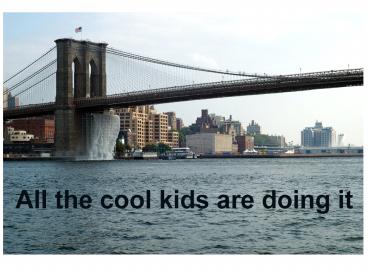New Cultural and Political Horizons: - PowerPoint PPT Presentation
Title:
New Cultural and Political Horizons:
Description:
It s a flattening of the God, King, hierarchy of the Great Chain of Being. Public anatomy illustrated the institutional changes. Peter the Great attended the ... – PowerPoint PPT presentation
Number of Views:99
Avg rating:3.0/5.0
Title: New Cultural and Political Horizons:
1
(No Transcript)
2
What is my Question?
3
(No Transcript)
4
Analyze how Galileo, Descartes, and Newton
altered traditional interpretations of nature
and challenged traditional sources of knowledge.
5
The What
- Self-conscious way of attaining knowledge about
the world. - Theoretical and empirical development.
(Scientific Method) - News institutional structure for gaining,
verifying, and distributing knowledge.
6
History of the Royal Society of London (1667)
7
King Louis XIV visiting the Academy of
Sciences Sebastian Le Clerc (1671)
8
Where-When-Who
- Where France, Italy, the Netherlands, Great
Britain. - When From Copernicus (1543) to Newton (1727)
- Who Largely men who engage in an activity seen
as masculine, although there were women as well.
9
Einstien
What is a Genius?
Disney
Mozart
Gates
10
Ancient and Medieval Science
- Aristotle until 16th
- Geo-centric.
- Cosmos ordered into spheres.
- Natures tendency was rest.
11
A mover had to be found for every motion.
12
Hypothesize some possible causes for such a
scientific view during the medieval period?
13
New Cultural and Political Horizons
The New Philosophy of Science
14
Revolution in Astronomy
- Aristotle until 16th
- Geo-centric.
- Cosmos ordered into spheres.
- Natures tendency was rest.
15
Vehement and passionate interest in the relation
of general principles to irreducible and stubborn
facts.
16
Copernicus
- Planets move around the earth at different speed.
- Concluded Helio-centric model
- Shift in Theoretical astronomy
- Angered Catholic, Protestant, and Jewish
theologians.
17
Tycho Brahe
- How does the universe work?
- Brahe reflected Copernicus theory of the earth
revolving around the sun.
18
Johannes Kepler
- Shared the Copernican theory
- Concluded the orbits were elliptical.
- Three Laws of Plantary motion.
19
Prioritize what were the most important points?
20
Francis Bacon
- Knowledge is Power
- Scientific Method
- Empiricism
- Novum Organum
21
Galileo
- The telescope
- Observations concluded the sun rotated.
- Falling objects velocity not determined by mass.
22
First View of the Moon through a Telescope (1609)
23
(No Transcript)
24
Descartes and NewtonCompeting theories of
Scientific Knowledge
- Descartes truth through deductive reasoning.
- Newton followed Bacons insistence that
scientific knowledge was through scientific
experimentation.
25
Rene Descartes
- Deduction
- 1637, published a Discourse of Method.
- Cartesian Dualism
26
Support with Deduction the existence of YOU!
27
Isaac Newton (1642 - 1727)
- Principia, The Mathematical Principles of Natural
Philosophy - Theory and experimentation.
28
- Falling apple related to planetary motion.
- Keplers laws correct if planets were pulled
toward the sun by a force. - Newtonian Synthesis Heavens and earth in a
uniform and infinite and mathematically regular
universe.
29
Biology as Physics
- Harvey thinks of the heart as a pump.
30
The Anatomy of Dr. Paaw of Leiden (1616)
The Culture of Science
- Mechanization of the world picture the world as
a matter in motion and the end of an allegorical
relationship between heaven and earth.
31
The Culture of Science
- Science could be put to use in the interest
civilization.
Anatomoy Lesson of Dr. Nicholas Tulp (Rembrandt
1632)
32
First Look at Spit under a Microscope
- Leeuwenhoek
- (1683)
33
Botany
- Women are key in botany.
- Maria Sebilla Marien
34
Analyze how Galileo, Descartes, and Newton
altered traditional interpretations of nature
and challenged traditional sources of knowledge.
35
- Challenge Aristotelian model espoused by the
scholastics, and endorsed by the Catholic Church - Galileo challenges geo-centric world and moral
dimensions. - Galileos universe conflicted with the Bible and
Aristotle - Descartess reasoning based on empirical
observation and deduction left no room for
revelation. - Newton took Galileos physics and created a set
of mathematical laws that explain motion and
mechanics. - Scientific Method
36
Compare and contrast the similarities between the
ancient and medieval science and the new science?
37
Suppose you were a member of government, how
would you react to all of these new ideas?































